Utrecht University Study Visit Speakers & Abstracts
Annetje Ottow
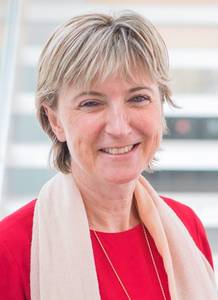
Vice-President Utrecht University
The fundamental character of a university gives it a great capacity to be an agent of change. This is certainly true when it comes to the role it can play in the global challenge of steering the transition to a sustainable future.
The research that we do, the students we educate to start the rest of their lives, our social contract with local partners and the society at large, let alone our entire student and staff population whom are also concerned citizens; all these factors taken together make it that sustainability should sit at the heart of everything we do. Our goal is to integrate research, education and operations into one active living sustainability lab within our three campuses. Of course, reaching this objective is not without its obstacles.
Vice-president Ottow is honored to kick-off The Sustainability Summit: Utrecht University Study Visit and invites you to discuss with her some of the University Utrecht’s current challenges in practicing what we preach as an agent of change.
Annetje Ottow serves as Vice-President of Utrecht University’s Executive Board since 1 January 2018. She served as Dean of the Faculty of Law, Economics and Governance (2014-217).
Ottow studied law at Leiden University, obtained a Master of Laws from Queen Mary College London, and a doctoral degree from the University of Amsterdam. She specializes in supervision and supervisors, market regulation, competition and European law. She became Professor of Public Economic Law at Utrecht University in 2007. In her research, Ottow combines academic expertise with practical experience. In 2015, Ottow’s book “Market and Competition Authorities: Good Agency Principles”, was published by Oxford University Press.
She is a non-governmental adviser to the International Competition Network (ICN). In 2019 she was appointed as the president of the State Commission investigating the accountancy market in the Netherlands.
Before entering the public service and academia, she was a lawyer in private practice for 16 years, active in het areas of competition and regulation. Ottow held several non-executive positions. She was member of the board of OPTA, the Dutch Independent Post and Telecommunications Authority. Ottow was Non-executive Director to the Board of the CMA (Competition and Markets Authority of the United Kingdom). She was member of the Supervisory Board to VU University Amsterdam and the VU university hospital. Ottow is member of the Supervisory Board to Het Juridisch Loket (Dutch Legal Helpdesk) and of the Persgroep Nederland (a leading media company in The Netherlands).
Joachim Ninaus
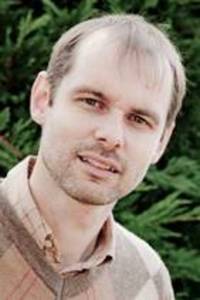
Assistant of the vice-rector for study, University of Graz
Since 2015 he has been Director of the Central Service Facilities of the University of Music and Performing Arts Graz and responsible for the areas of personnel department, financial accounting, stage technique, event-management, computer applications and systems, facility management and law. Prior to that, he had seven years as CEO of a regional management company with the goal of climate protection and awareness raising.
From 2000 to 2007 he was Assistant of the management body (university council, rector, vice-rector for study, senate) and in 1997 he started to build up the study “environmental system sciences” at the University of Graz.
Julian Skyrme
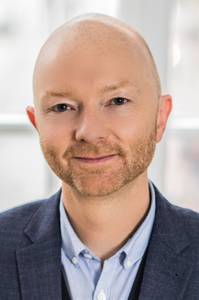
Director of Social Responsibility, University of Manchester
The University of Manchester is the largest campus university in the UK and part of the research-intensive Russell Group of universities. With 25 Nobel prize winners among current and former staff and students, Manchester has a history of world firsts and discoveries, from splitting the atom to giving the world graphene. The University committed to a new strategy with just three goals in 2011: world-class research, outstanding learning and student experience, and social responsibility. Most universities undertake these first two goals, but Manchester was the first (and still the only) UK university to give social responsibility the same strategic priority. But what does social responsibility mean? Is it really separate from the traditional functions of research and teaching? And how do you embed and measure success on this agenda? As the University’s first ever Director of this area, Dr Julian Skyrme will share his experience in developing and implementing Manchester’s strategy for social responsibility.
Dr Julian Skyrme is Director of Social Responsibility at The University of Manchester – the UK’s largest campus university. Social responsibility is one of the University’s three core strategic goals and aims to ensure its learning, research, engagement and operational activities make a positive difference to society. Julian was the first in his family to attend university, reading Political Philosophy, Economics and Social Sciences at Manchester. He spent his early career teaching in an urban state Sixth Form College as Head of Social Sciences and Assistant Vice-Principal. He’s worked in higher education since 2001 in a range of leadership and management positions. Julian is passionate about social purpose of higher education and has advised a number of national policy groups and committees relating to higher education access. Locally, Julian sits on Manchester City Council’s Strategic Education Partnership Board; he’s a Governor on the Board of Loreto Sixth Form College; a Trustee on the Board of Directors for MACC – Manchester’s voluntary, community and social enterprise support organisation; and sits on Manchester’s Homeless Partnership Board. He’s also a Fellow of the Royal Society of the Arts, occasional musician, frequent cyclist, Manchester United and Wales fan, husband and father to two children.
Jeroen Vanden Berghe
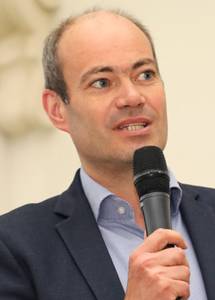
Chief Administrator, Ghent University
Since the endorsement of a Sustainability Vision in 2013, Ghent University has initiated an increasing number of initiatives and activities to shape and to speed up the transition towards a sustainable university and a sustainable society. Pushed forward by a group of positively involved students, researchers and staff, the management of the university has delivered on the sustainability agenda. With successful but also with failed initiatives. With small scale bottom-up experiments which were eventually implemented throughout the entire university. By learning from scientific evidence or by learning from experience out of academia. By focusing on the core tasks of a university – research and education – but not forgetting the implementation of sustainability in its management (campus development, energy, food, mobility, divestment). In his talk Jeroen Vanden Berghe will highlight some of the experiences, the obstacles and the successes in implementing the Sustainability agenda at Ghent University. And how sustainability is no longer seen as a “problem”, but how it became the “norm”. The sustainability report 2018 of Ghent University can be downloaded: here
Jeroen Vanden Berghe is Chief Administrator at Ghent University (Flanders, Belgium), a position that he holds since September 2012. He has university master degrees in Archaeology, Information Sciences and International Political Sciences. He has a professional background in research and innovation policies, both at university and government level.
Together with the Rector, the Vice-Rector and the Chief Academic Administrator he forms the Management Committee of the university, responsible for the day-to-day management of the university and the co-ordination of the central university administration. As Chief Logistics Administrator, he has an overall responsibility for the Financial Department, the Department of Information and Communication Technology, the Department of Infrastructure and Facility Management and of the Student Facilities. He has a seat in the Board of Governors and the Executive Board of the University. As representative of the University, he is actively involved in a variety of initiatives, such as the development of the Ghent Science Park or the organisation of the Ghent Light Festival. His curiosity for academic heritage had led to the support of the establishment of the Ghent University Museum.
Bert van der Zwaan
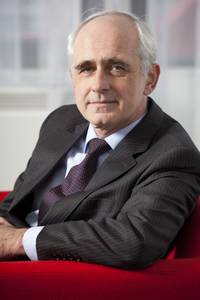
Former Rector Utrecht University, Former Chair of LERU
After 800 years the state of the university should be reconsidered very carefully. In the English-speaking world there is an increasing chorus of voices that comment on the “crisis of the research university”, and that predicts a troublesome future based on the sky-high tuition fees, the increasing privatization and the decreasing government support. The first reflex to this is to react from an inward-looking perspective, and to start the narrative that pleads for increased funding to preserve the university in present state. However, instead of reasoning from within, it seems wise to consider the question whether the university is still well positioned in a changing society. A central element in this debate concerns the question whether the university shows enough leadership in the mass of pressing problems that society is facing: dwindling resources, mass-migration and a sustainable future of the planet, all form great challenges. Increasingly students and faculty ask their university to address these problems and be a role model for society. It is therefore unescapable that universities put this at the top of their agenda, to point the way to solutions, including transforming their own organisations accordingly.
Bert van der Zwaan is emeritus professor of Biogeology at Utrecht University in the Netherlands. Trained as a paleontologist, his main research interest involved the impact of climate change on the extinction of marine faunas. Early in his career, he initiated many interdisciplinary research programs and later was director of the Darwin Center for Biogeology. Through this work he became interested in the (regional) impact of universities on innovation. He has been lead-PI and CEO of Climate KIC, one of the first Knowledge and Innovation Communities of the EU, dealing with adaptation to climate change. He became dean of the Faculty of Geosciences in 2006, and was Rector Magnificus (Vice Chancellor) of Utrecht University from 2010-2018. He recently stepped down as president of the European League of Research Universities (LERU). Bert van der Zwaan has held numerous positions inside and outside of the academia, and (co-)authored many research papers, including more recently on Higher Education. He is the author of the book, “Higher Education in 2040” (2017).
Maren Rühmann
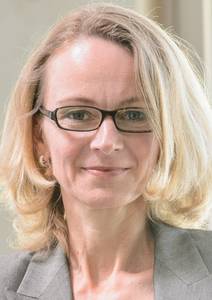
Director of the Division of Academic and International Affairs, University of Konstanz
Eventually, we got there!: “sustainability” is now firmly on the University’s agenda for the development of the strategic plan 2019 – 2024. In our session we will describe the beginnings of the discussion at the University of Konstanz around 6 to 7 years ago. Not surprisingly – it has been a student-led initiative from the start, which has now made it to the strategic and senior management level of the University. We will explain the steps that were taken on this journey, from the founding of the first Green Office in Germany. We will share our experiences of the ups and downs that we faced: What worked, what did not work in Konstanz? Together with the participants we will reflect on the process of achieving meaningful change and try to find out what could be “universal” wisdom, i.e. what could be likely to work elsewhere, what might work at an other university which did not work for us in Konstanz? Which structures, which practices were helpful, which windows of opportunities opened up – e.g. a change in the leadership position of the rector. As for Konstanz the student activities in combination with stakeholders in the administration played a crucial role. Our session will be delivered as workshop by a staff and student mixed team.
Maren Rühmann has been part of the University of Konstanz since 1993. She studied English Linguistics and Spanish Literature with a one year stint each in Portland, OR, and Granada, Spain. She started her professional career in 2000 supporting the University of Konstanz in the Bologna process. Since 2006 she has been the Head of the Division of Academic and International Affairs and thus leads the Directorates of Academic Staff Development, International Office and Equal Opportunities and Diversity. Maren is also responsible for preparing the meetings of the University’s governing bodies, the Rectorate and the Senate. Her division plays an active role in supporting the university’s strategic planning and is responsible for implementing the university’s strategic aims and measures in close collaboration with the departments and other divisions and institutions. The student-led Green Office is also being supported by Maren’s team. Convinced that students’ creativity is a great contributor to the university’s development she works closely together with the student members of the Senate and the Student Union
Ilmari Thömmes-Jeltsch
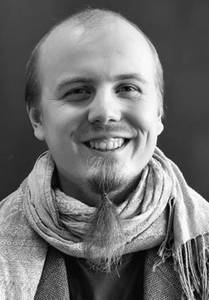
Green Office, University of Konstanz
Ilmari Thömmes-Jeltsch is currently finishing his masters in psychology and is completing his thesis at the Fraunhofer Institute for Systems and Innovation Research ISI about communication processes within the energy transition. He has been involved in the founding of the Green Office at his University in 2015, has accompanied its development and since 2017 he has been the Community Projects Coordinator. Besides his involvement in the Green Office he is an active member of the student union and currently a member of the senate as well as vice president of the student parliament.
Dick Jager
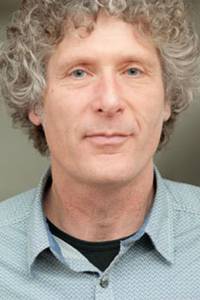
Program manager for Institutional Sustainability, University of Groningen
As a socially responsible institution, the University of Groningen has set itself the goal of promoting sustainable development in every aspect of University operations. This includes sustainable development in teaching and research, as well as excelling in sustainable business operations. This will be achieved by establishing an inspiring, healthy, sustainable environment in which staff and students can work, study and live.
In 2015 a Roadmap 2015 -2020, with goals in the area of People, Planet end performance was validated by the board of the University. During the last 4 years these goals within the Roadmap have become the leading agenda for the UG where it comes to sustainability. To reach this a Green Office was established in 2015 and a taskforce was set up with attendees from the Faculties, staff and students of the UG as an advisory group. 4 years later the UG belongs to the top 7 of sustainable Universities in the world according to the Green Metric worldwide ranking.
In 2013 Dick Jager started as the program manager for integrated sustainability at the University of Groningen. In 2014 he initiated the Taskforce for Sustainability and the Green Office (GO) for the UG. The Taskforce acts as the advisory group for sustainability projects for the Board of the University and the Green office. The Taskforce consists of researchers, teachers, students and staff members of the UG. The Green Office started off as a student driven department of the UG. In 2018 the Green Office became a department of the university lead by students and staff members. Together they coordinate and initiate projects related to sustainability at the University of Groningen. The goal of the Green Office and the Taskforce is to make sustainability part of the UG DNA. To reach this goal a “Roadmap for Sustainability; University of Groningen 2015 -2020”, with a list of seventeen ambitions for the People, Planet and Performance (profit) part of sustainability, was set up.
Dick started his career as research technician at plant Genetics at the UG. After that he worked for 7 years at Bioclear Earth, an environmental advisory bureau where among others he did research for the European Space Association (ESA). In 1995 he started working for the University of Groningen as an environmental and biological safety officer. Since 2013 he holds the position of program manager for integrated sustainability.
Anjelle Rademakers
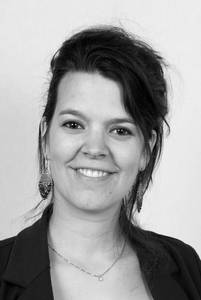
Manager of the Green Office, Utrecht University
A Green Office is a student driven university department that informs, involves and empowers students and staff to act on sustainability. During this session you will be guided through the ins and outs of the Green Office Model and how it has been adapted at Utrecht University. What obstacles has Green Office Utrecht faced in its five year existence, which ones did we overcome and which ones are we still struggling with? What pitfalls can be avoided when setting up a new Green Office? There will be room as well to introduce challenges and obstacles faced by other institutions with regards to community engagement to see whether together we might find a solution!
cultural anthropology and international development studies in Nijmegen and Utrecht. Afterwards she’s worked at a small variety of NGO’s and foundations such as FairFood and Friends of the Earth Netherlands (Milieudefensie). While working for the SustainaBul, a student led project aimed at ranking the sustainability level of higher education institutions, she found how contagious the energy and motivation of students can be, and how keen many students and staff are to change their working environment. She jumped on the opportunity to develop and lead the Green Office of Utrecht University and has been doing so since September 2013, building it up from scratch with the help of rootAbility, the founders of the Green Office Model.
Mark Doggett
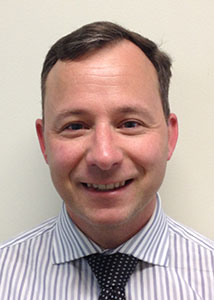
National Manager, Sustainability, Australian Catholic University
Sustainability – and climate change in particular – is a highly contested idea in Australian civil society but Australian universities have nonetheless applied sustainability to their operations and capital development and normalised sustainability as an institutional value.
Universities have now assumed a leading role in Australia for not only the teaching and research of sustainability, but of its application to the business of education.
This presentation will show how Australian Universities in general, and how ACU in particular, have achieved this role, and how they plan to advance their application of sustainability.
Mark Doggett has worked for over a decade in sustainability management, for Monash University, Melbourne, and for the Australian Catholic University, following a career in military communications. Mark has assisted ACU to restrict its environmental impacts during a period in which the University more than doubled its size, so that ACU now has one of the smallest environmental footprints of any University in Australia.
Miriam Maes
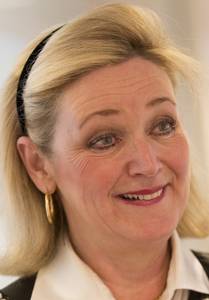
Co-Chairman Energy Transition Forum, Chairman Supervisory Board – Port of Rotterdam
This presentation will outline 4 key topics, based on actual experience and real-life examples:
- The processes and approach in companies and organisations to implement successfully a Sustainability programme.
- The importance of tackling Climate Change and realising a responsible Energy Transition in the context of Sustainability.
- The role of Universities in the transition to a more Sustainable future.
- How to engage teams and change behaviours to overcome barriers to sustainability?
Miriam Maes has worked over 35 years for multinationals, including more than 20 years managing national and international P&L’s. After managing international food, food services and beverages businesses for Unilever, ICI and the Marmon Group, in 2002 she entered the energy sector, first with Texas Utilities as a member of their European Executive and subsequently with Electricity de France (EDF) in the UK, as COO of their non-regulated distribution networks’ business.
In 2007, Miriam became CEO of Foresee, an energy and climate change strategy consultancy. Between May 2010 and April 2012, she was Advisor to the UK Department for Energy and Climate Change. In 2012, Miriam became a Senior Fellow on the Climate and Energy Program of the German Marshall Fund of the United States (“GMF”), a Washington-based transatlantic think tank, and became Chairman of GMF’s “Energy Transition Forum”. In 2015, Miriam took ownership of the “Energy Transition Forum 2.0” and partnered with the United Nations Foundation.
Until May 2017, Miriam served for 6 years, first as Member and then as Chairman of the Board, of the Euronext-listed company ELIA Group, comprising “Elia”, the Belgian national grid operator and “50Hertz”, the German Transmission System Operator. She is currently serving as Chairman of the Supervisory Board of the Port of Rotterdam and as a Non-Executive Director on the Board of URENCO, a joint venture between the UK, German and Dutch governments for the manufacture of enriched uranium for nuclear power utilities worldwide. She is also serving as a Non-Executive Director on the Boards of three Euronext-listed companies in France: Eramet (mining), Vilmorin & Cie (agricultural seeds), and Assystem (Energy Engineering).
George Parsons
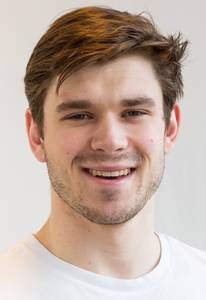
Green Office, Utrecht University
In this presentation George will try to calculate your personal CO2 footprints, from the first step you took on the way to Utrecht to the last bite you took at dinner. All this information will go towards counting the carbon impact of the Humane conference and finding out where all our emissions are made. We will first explore the biggest contributions to the Humane Footprint, and then take a look at the ways knowledge institutions can tackle their CO2 footprints and find out how each of us can progress towards a low-impact lifestyle.
George Parsons is a student coordinator within the Green Office Utrecht. He works to tackle sustainability challenges, with the help of colleagues, within Utrecht University across the domains of mobility, circularity, food, green campus, and visibility. His passion lies in making sustainability accessible and fun to the whole UU community and providing ways for everyone to make those small but significant changes to their lifestyles and attitudes.
Tiemen Wagenvoort
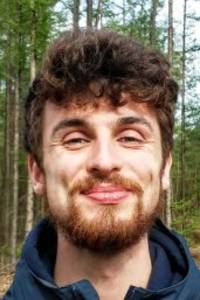
Circularity Coordinator, Green Office, Utrecht University
The human brain and sensory system highly fascinates Tieman, and the unsustainable behaviour towards the environment deeply concerns him. With that in mind he searched for a way to combine the two issues. During the bachelors programme of Psychology at Utrecht University, he came to realise that the most important challenge of his generation is the climate crisis we’re currently in. Not only did he transition towards a plant based diet, he also travelled the world without an airplane and aspires to live in a tent for at least a year.
This all fits in a bigger scheme of helping others and Utecht University to become more environmental friendly. For example, he was involved in the project group Gewoon Vega last year, which successfully nudged and informed customers of a university restaurant to choose sustainable food.
Tiemen Wagenvoort was born in Utrecht. He is currently working for Green Office Utrecht as a project coordinator in the Circularity theme. Even though it is a cliché, he believes that all small actions we all make add up and can make the crucial difference in this sustainability challenge!
Alex Baker-Shelley

Founder, CEO, Ozymandias Intelligence Solutions
Alex holds a B.Sc. in Environmental Science from the University of Manchester, and an M.Sc. in Sustainable Development from Uppsala University. He is about to finish his PhD project at Maastricht University (ICIS) on how universities can navigate organisational transformation pathways for sustainability.
Based on 14 years of experience studying, experimenting and working with diverse sustainability aspects, his vision is to create space for inquiry and innovation with organisations that have the purpose to remodel how organised human life works. To best leverage this, he started his own action-oriented thinktank-consultancy, Ozymandias Intelligence, which provides sustainability intelligence solutions to entrepreneurs, change-agents and SMEs to effectively navigate change, and to build capacity for positive transformation that resolves climate and sustainability crises.
In recent years he has worked closely alongside the Green Office in Maastricht and throughout the European Green Office network. He has also advised social enterprise and sustainability think tanks in the Netherlands and Sweden, and performed embedded case-studies of pioneering universities that effectively navigated sustainability transformation in Phoenix, Lüneburg and Hong Kong (ASU, Leuphana-University-Lüneburg, and HKUST).
Joop Kessels
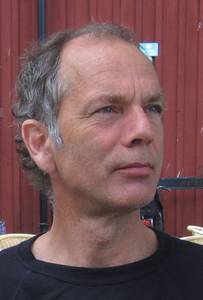
Study Visit Host and Convenor
Joop Kessels (1953) was Head of Administration of Utrecht University until January 2017. Prior to this his other positions at Utrecht University included, among others, director of Education and Research, director of Communications and Marketing and spokesman of the Executive Board. Joop studied biochemistry and received PhD in fundamental protein chemistry. Joop was involved in the creation of a sustainability programme and the foundation of a Green Office at his university.
Presently he is active in several projects, mainly concerning organisation change, both at Utrecht University and other universities.
Ian Creagh
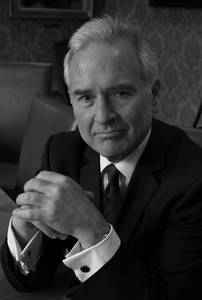
Study Visit Convenor
After serving 10 years as King’s College London’s Senior Vice-president Operations & College Secretary, Ian now holds a portfolio of roles including Strategy Consultant for HUMANE. Prior to King’s, he held similar chief operating officer roles at City University London and before that, the University of Adelaide. The first part of his career was in the Australian Public Service where he rose early on to become a member of the Senior Executive Service. Ian is also an experienced non-executive having served on the Board of King’s Health Partners, the Council of Governors of an NHS Foundation Trust, and the audit committee of the British Academy.